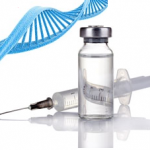Covid-19: The Race for a Vaccine
The race to save lives has begun. Scientists around the world are speeding to develop a vaccine for COVID-19, a disease that has claimed the lives of more than half a million lives worldwide, and sickened millions of others. Vaccine development usually takes 10 to 15 years, and the long, involved process takes a tremendous amount of public and private involvement. At the current rate of severe acute respiratory syndrome coronavirus 2 (SARS-CoV-2) infections that cause COVID-19 disease, though, the world does not have 10 to 15 years to wait.

On July 18, 2020, the World Health Organization (WHO) reviewed 23 candidate vaccines in clinical evaluation. Many were still in Phase 1 to establish their safety and dosage at the time of the WHO review, while others were in Phase 2 to establish their performance under ideal and controlled performance. As of that mid-July WHO review, three clinical trials had entered Phase 3 for testing on large numbers of people, although one vaccine trial had not yet recruited candidates.
Why Must We Wait So Long?
Most vaccines in development never make it to licensing – in fact, many vaccine candidates never make to clinical evaluation on real humans because they fail to produce the desired immune response in the pre-clinical stages of testing in cell cultures and lab animals.
Regulators set a high bar for vaccination approval and often require years’ worth of safety data because, unlike medicines that treat diseases, vaccines are administered to healthy people to prevent illness. Releasing a vaccine could potentially do more harm than good, so many regulatory bodies set stiff guidelines for approval.

It is not yet clear what data federal regulators would accept as proof that a vaccine is safe and successful in the middle of the pandemic. On June 30, 2020, the U.S. Food and Drug Administration (FDA) said a vaccine must prevent COVID-19 or decrease the severity of illness in at least 50 percent of people who receive the vaccine. The FDA may consider some vaccine candidates for its Accelerated Approval pathway, but that the vaccine candidate must demonstrate an identifiable immune response or other measure that shows it is reasonably likely that the vaccine would provide clinical benefit. Regulators in other nations have not yet announced what they would consider acceptable criteria for approval, which creates a challenge for vaccine makers trying to gain approval.
More Challenges for Vaccine Makers
Vaccine makers also face challenges determining the best way to trigger the immune response. Vaccines typically work by exposing the body to the antigens of a particular pathogen to activate the immune system without causing disease. Made with weakened or inactivated form of the pathogen, these vaccines are often difficult to develop and produce quickly. Because of the urgent nature of the pandemic, researchers are looking for innovating ways to introduce antigens and otherwise activate an immune response to SARS-CoV-2. Four of the 23 vaccine candidates in clinical testing use an approach that involves engineering messenger RNA (mRNA) that tells human cells how to create the antigens themselves.

Moderna is one of those four companies. On July 15, 2020, the biotech company published data from an early-stage trial that shows its vaccine caused patients to generate an immune response by developing antibodies, although it caused some side effects. Supported by the National Institutes of Health, the study showed volunteers who receive the vaccine produced substantially more neutralizing antibodies than do most patients who have recovered from COVID-19. A second injection administered four weeks after the initial vaccination was necessary to produce a dramatic immune response. Vaccine experts were not impressed, however, concerned that the data was long on text and short on proof.
Other research teams, such as University of Oxford/AstraZeneca are using viral vector vaccines to speed up the process. Viral vector vaccines use a harmless virus as a kind of Trojan horse that carries the pathogen’s genetic material into cells in order to trigger an immune response. The team released more information about its coronavirus vaccine candidate, AZD1222, on July 20, 2020.
Developing a COVID-19 vaccine will be one of the most exciting and important events in human history, with the potential to save millions of lives around the world. Join us next month when we review the next leg of the race for a COVID-19 vaccine.
To View Frank Magliochetti Press Releases Please CLICK HERE
Frank Magliochetti owes his professional success to his expertise in two areas: medicine and finance. After obtaining a BS in pharmacy from Northeastern University, he stayed on to enroll in the Masters of Toxicology program. He later specialized in corporate finance, receiving an MBA from The Sawyer School of Business at Suffolk University. His educational background includes completion of the Advanced Management Program at Harvard Business School and the General Management Program at Stanford Business School. Frank Magliochetti has held senior positions at Baxter International, Kontron Instruments, Haemonetics Corporation, and Sandoz. Since 2000, he has been a managing partner at Parcae Capital, where he focuses on financial restructuring and interim management services for companies in the healthcare, media, and alternative energy industries. Last year, he was appointed chairman of the board at Grace Health Technology, a company providing an enterprise solution for the laboratory environment. Most recently; Frank was appointed Chairman and Chief Executive Officer at Designer Genomics International, Inc. The Company has accumulated a growing body of evidence that highlights a link between alterations in the immune and inflammatory systems and the development of chronic human disease. The Company is visionary and has established itself as a leader in the field of inflammatory and immune genetic DNA and RNA biomarkers that play a causative role in debilitating conditions, such as atherosclerosis/heart disease, diabetes, arthritis, inflammatory bowel disease, post-traumatic stress disorders (PTSD) and cancer.
A proprietary state-of-the art data mining bioinformatics program, called ‘cluster analysis’ will be used to measure disease development susceptibility with potential for earlier diagnosis and intervention. The company is developing a healthcare program based on its proprietary genetic panels that will allow people to be their own healthcare advocate and take an active role in their health status as well as longevity.

Managing Partner
Parcae Capital
www.parcaecapitalcorp.com
www.frankmagliochetti.com
Sources
https://coronavirus.jhu.edu/map.html
https://www.historyofvaccines.org/content/articles/vaccine-development-testing-and-regulation
https://www.who.int/publications/m/item/draft-landscape-of-covid-19-candidate-vaccines
https://www.nejm.org/doi/full/10.1056/NEJMoa2022483






